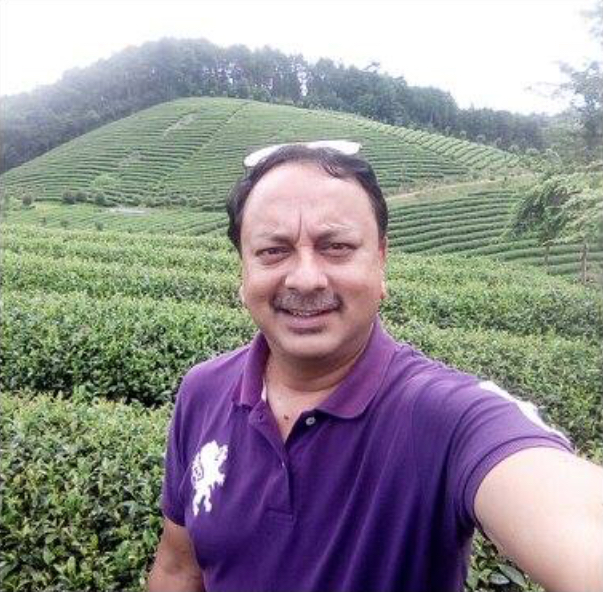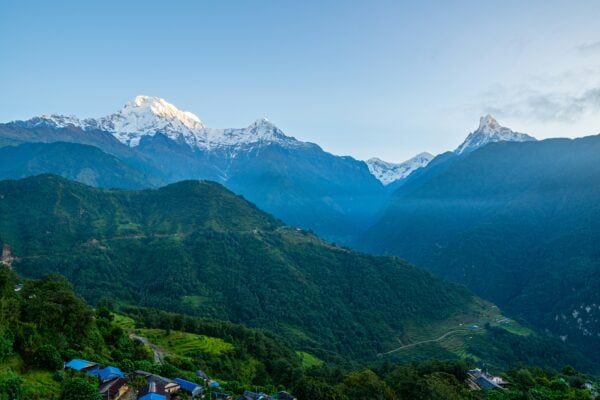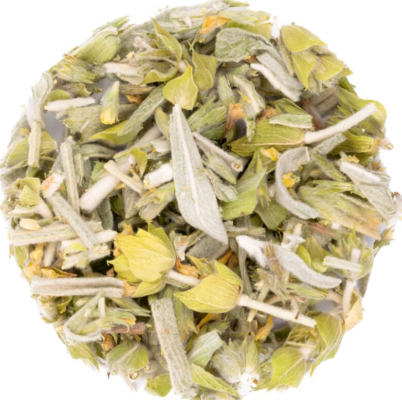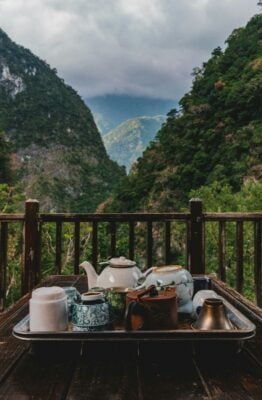Stories About Tea welcomes a new international guest writer, who will contribute once a month! Meet freelance tea consultant Parveez Arshad Hussain from India, who has been a tea professional since 1988 and has worked for Williamson Magors in the region of Assam. Read our introduction interview!
Who are you and what do you do within the tea industry?
My name is Parveez Arshad Hussain and started my tea career way back from 1988, I am basically from Assam and had joined a very reputed Tea Company ( Williamson Magors) as a Labour Welfare Officer in a garden called Hunwal in Upper Assam. It has been a nice and long journey of over three decades and currently I am a freelancing Tea Consultant visiting gardens in India, Nepal, Bangladesh.

When did your passion for tea start and how?
I grew up in a town called Dibrugarh (also known as the Tea City), where there was tea all around. I had visited quite a few of these gardens with my parents, but never realizing that this would be my passion one day. I studied English Literature for my Graduate and Post Graduate courses but then after completing my courses I didn’t want to study any more but wanted to work. I saw an advertisement on a Local daily that a very reputed Company was looking for candidates for a post of Labour Welfare Officer in the Assam plantations. I had heard about the company called Williamson Magor from one of my friend whose uncle used to be a manager in some garden of this company. I applied for the post and the first interview took place in Guwahati, Assam where we were shortlisted among over 400 aspirants. My final interview was in Kolkata and after clearing that I was given my first posting in a garden named Hunwal.

Can you tell what you did at your time in Assam, Darjeeling and China?
My first few years were in Assam where I got to learn the ABC’s of tea starting from field, factory, labour management, accounts and more. Assam teas are famous world wide for its nice strong brew with a lot of flavour to be enjoyed mostly with milk and sugar or even with a wide varieties of spices for the so called Masala Chai. Darjeeling tea is all together as I say, a different cup of tea. The uniqueness of a Darjeeling Tea is that it has a very different flavour and aroma profile which is very distinctive in all the different seasons, namely the 1st flush, the 2nd flush, the monsoon flush and then the autumn flush.
China is mostly very high quality green tea and there I had worked with some small farmers in learning some of their styles of making Longjians, Maofeng, Emerald greens, Pearl tea and more.
What makes each region unique when it comes to tea?
The climate, elevation, topography and soil plays a very important part in the growing of tea and as these tea growing areas are very different, it adds to the uniqueness of the tea quality. Secondly the cultivar either it is a Camellia Sinensis or it is a Camellia Assamica, which are very different in its character profile resulting in different types of tea. China and Darjeeling has high elevation hilly areas under tea whereas in Assam in is mostly planted in the plains.

What are the standout teas in Assam, Darjeeling and China in your opinion and why?
It is very difficult to access the standout teas region wise, but every area has some gardens which produce very high quality tea and there are a lot of factors to determine the same, starting from the tea leaves harvested to the entire manufacturing process where every thing is important to ultimately produce a high class tea.
What are the trends in tea for this year and the teas to come?
Off late there has been an increasing trend for so called fruit teas or herbal based teas, which I frankly don’t like it to be called as teas but as ti sane or infusions.
How important is water for tea?
Water does play an important and integral part in the process of tea making and also when one is tasting teas. It has to be boiled to the right and correct temperatures according to the teas, for example a white tea is to be brewed for about 2 to 3 minutes with water temperatures of 85 to 80 C and like wise for different teas with different temperatures.




